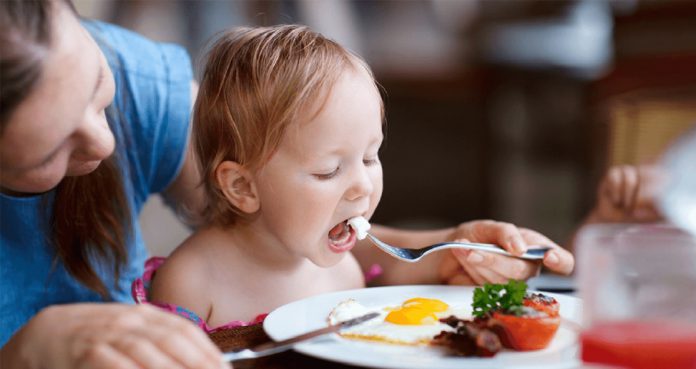A new study published in Annals of Allergy, Asthma & Immunology has suggested that parents who have children with a food allergy should recognize their own anxiety in order to help their children overcome fears about their food allergy.
The study researchers discussed the difficulties faced by parents with children having food allergies in not transferring their own anxieties to their kids.
Lead study author Dr. Lisa Lombard said, “Food allergies are scary for both parents and children, which is why it’s important for parents to offer fact-based strategies in order to not increase their child’s concerns.”
“According to the allergists we interviewed, thoughtful and balanced communication and having credible information to share with your child go a long way toward helping your child with food allergies cope with their fears,” added Dr. Lombard.
The researchers interviewed six board-certified allergists who treat a great number of children with food allergies. Their goal was to get the allergists’ views on the major factors contributing to increased anxiety in patients with food allergy.
Study co-author Dr. Ruchi Gupta said, “The allergists said the major factors contributing to elevated anxiety in kids with food allergies included fear of the epinephrine auto-injector needle, fear of anaphylaxis and apprehension about participating in oral food challenges or oral immunotherapy.”
“They also said that although allergic reactions and epinephrine can be scary and disruptive, those experiences were often opportunities for positive coping. For example, successfully using epinephrine can bring a sense of relief after the unknown is faced,” Dr. Gupta added.
According to the authors, the allergists noted that younger children, in particular, might not be especially anxious, but their parents are.
The allergists also noted that food challenges are an opportunity for parents to lessen their unknown fear.
Dr. Gupta explained, “Because children take cues from their parents, and their level of anxiety often reflects their parents’ level of anxiety, parents need to recognize how they’re communicating with their children about food allergies.”
“The allergists interviewed told us they sometimes have parents come in for counseling without the child because doing so helps them take care of the child and the family at the same time,” continued Dr. Gupta. “One allergist suggested parents use reassuring dialogue like ‘we’ll get through this’ with their kids rather than expressing their own anxiety of fear.”























